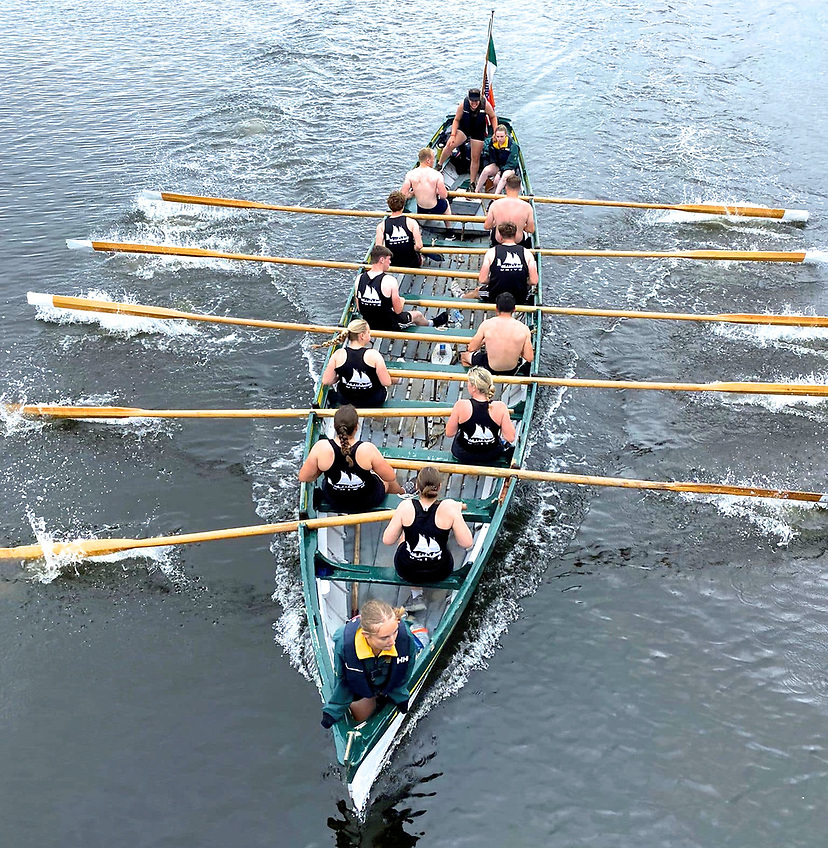For years, speculation and whispers surrounded the choice to substitute lightweight events with coastal rowing in the Olympic Games. While numerous individuals anticipated that Paris would introduce this sport, it was officially announced that Los Angeles would host the inaugural Olympic beach sprints finals. This emerging sport has received a varied response. Many express concerns […]

For years, speculation and whispers surrounded the choice to substitute lightweight events with coastal rowing in the Olympic Games. While numerous individuals anticipated that Paris would introduce this sport, it was officially announced that Los Angeles would host the inaugural Olympic beach sprints finals.
This emerging sport has received a varied response. Many express concerns regarding its status as a new form of rowing, believing it doesn’t yet deserve the recognition of an Olympic class event. Nevertheless, coastal rowing has a long history, even existing before the modern Olympics came to be.
There exists a rewarding balance between the rowing we cherish and the style we’re beginning to explore. Coastal rowing is a discipline practiced by athletes who may not have access to expansive rivers or stunning lakes during their formative years. With ample space to train and typically calm waters devoid of houseboats or trees, it allows for stress-free training sessions.
Having grown up on the UK coast, I’ve had the opportunity to experience this type of rowing, which features both sweep and sculling events, following the conventional 2000m race format. The boats are designed to be more indicative of a fast vessel, with notable differences being their shorter length, greater width, and significantly increased weight!
Make no mistake; it’s undeniably coastal rowing. Waves are unavoidable, and apart from the annual South Coast Championships, there’s often a turn or two involved. The variation in conditions can dramatically influence race outcomes, resulting in victories for a diverse range of competitors. It’s exhilarating to watch, challenging to cox, and intensely fast-paced to row. Athletes who move from the sea back to the river frequently find themselves returning to coastal rowing for the sheer enjoyment it offers, often encouraging others to join them.
Recently, I spoke with Matt Aldridge at the South Coast Championships in Southampton. The Olympic bronze medalist initially learned to row at Christ Church Rowing Club, a coastal club located in southwest England. We discussed the experiences coastal rowing provides and how it shaped our time at Oxford Brookes and for him, with GB. One point of our conversation revolved around how distinct yet similar the experiences are, as well as our mutual efforts to promote the sport to others.
We’ve observed Henley champions come to the coast, only to be outperformed by someone in their 40s! Yet, rather than feeling discouraged or ashamed, they consistently return, excited about the experience and eager to try again.
“It’s a chance to challenge yourself against the elements,” he noted. “Mass starts where anything can happen. It’s incredible.”
We also touched on the camaraderie found in rowing, where time spent together fosters closeness, but coastal rowing seems to enhance that connection even further.
He remarked: “The community spirit along the coast is astounding. While you can find it inland too, on the south coast, everyone becomes truly good friends, knowing each other exceptionally well, creating a large family-like atmosphere.”
Maybe this sense of community is what attracts individuals to coastal rowing. It’s not merely about competing against others; it’s about the crew working together to overcome the conditions. You form friendships with your rivals, witnessing firsthand the essence of sportsmanship within a competitive context.
There’s no denying it – coastal rowing is distinct from river rowing. It’s not merely beach sprints either. It combines the finest aspects of both, delivering a unique experience drawn from their individual qualities. If these attributes qualify river rowing as an Olympic sport and capture the essence of the Olympics, then surely the beach sprints share those same credentials?
In the end, we don’t have a say in what is included in the Olympics. It’s a given that someone will emerge as an Olympic champion in this discipline. Therefore, maybe we should all give it a shot, discover what lures people in, and understand why that one person from your life, who grew up coastal rowing, remains deeply connected to their club and wants you to experience it too.
About The Author
Discover more from JRN
Subscribe to get the latest posts sent to your email.














